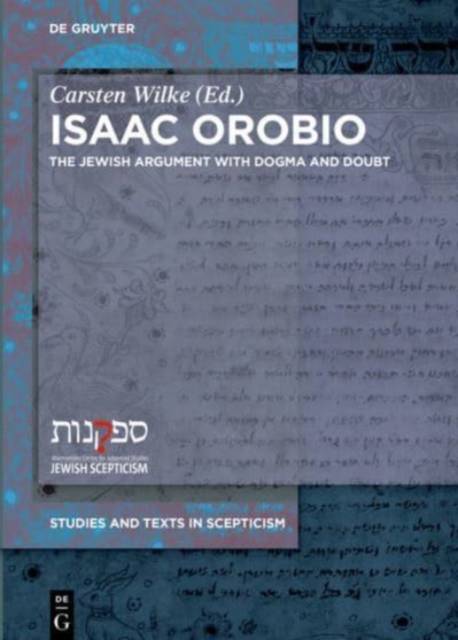
- Afhalen na 1 uur in een winkel met voorraad
- Gratis thuislevering in België vanaf € 30
- Ruim aanbod met 7 miljoen producten
- Afhalen na 1 uur in een winkel met voorraad
- Gratis thuislevering in België vanaf € 30
- Ruim aanbod met 7 miljoen producten
Zoeken
Isaac Orobio
The Jewish Argument with Dogma and Doubt
€ 101,45
+ 202 punten
Omschrijving
In this volume, six historians explore new approaches to Isaac Orobio de Castro (1617-1687), an Amsterdam physician who was the most widely-read among the early modern defenders of Judaism against Christian proselytizing. He was also the major author who rebutted Benedict Spinoza's Freethought from inside his own Sephardic community. Reflecting on the developments in early modern studies that have appeared since the publication of Yosef Kaplan's seminal monograph in 1982, the authors revisit Orobio's intellectual personality with a focus on transcultural processes, clandestine book culture, philosophical rhetoric, and literary reception. Born in Portugal to Christian parents of Jewish ancestry, Orobio left behind a brilliant career as a court physician in Spain and France when he publicly embraced Judaism. With academic erudition, he translated Jewish religious positions into the eclectic philosophy of the day, using both rationalist and sceptic arguments. His work leaked out into the non-Jewish world and armed Enlightenment philosophers for their attacks on Christianity, showing the impact of Jewish criticism on the early modern quest for philosophical certainty and religious pluralism.
Specificaties
Betrokkenen
- Uitgeverij:
Inhoud
- Aantal bladzijden:
- 134
- Taal:
- Engels
- Reeks:
- Reeksnummer:
- nr. 2
Eigenschappen
- Productcode (EAN):
- 9783110575613
- Verschijningsdatum:
- 5/11/2018
- Uitvoering:
- Hardcover
- Formaat:
- Genaaid
- Afmetingen:
- 175 mm x 244 mm
- Gewicht:
- 430 g

Alleen bij Standaard Boekhandel
+ 202 punten op je klantenkaart van Standaard Boekhandel
Beoordelingen
We publiceren alleen reviews die voldoen aan de voorwaarden voor reviews. Bekijk onze voorwaarden voor reviews.










